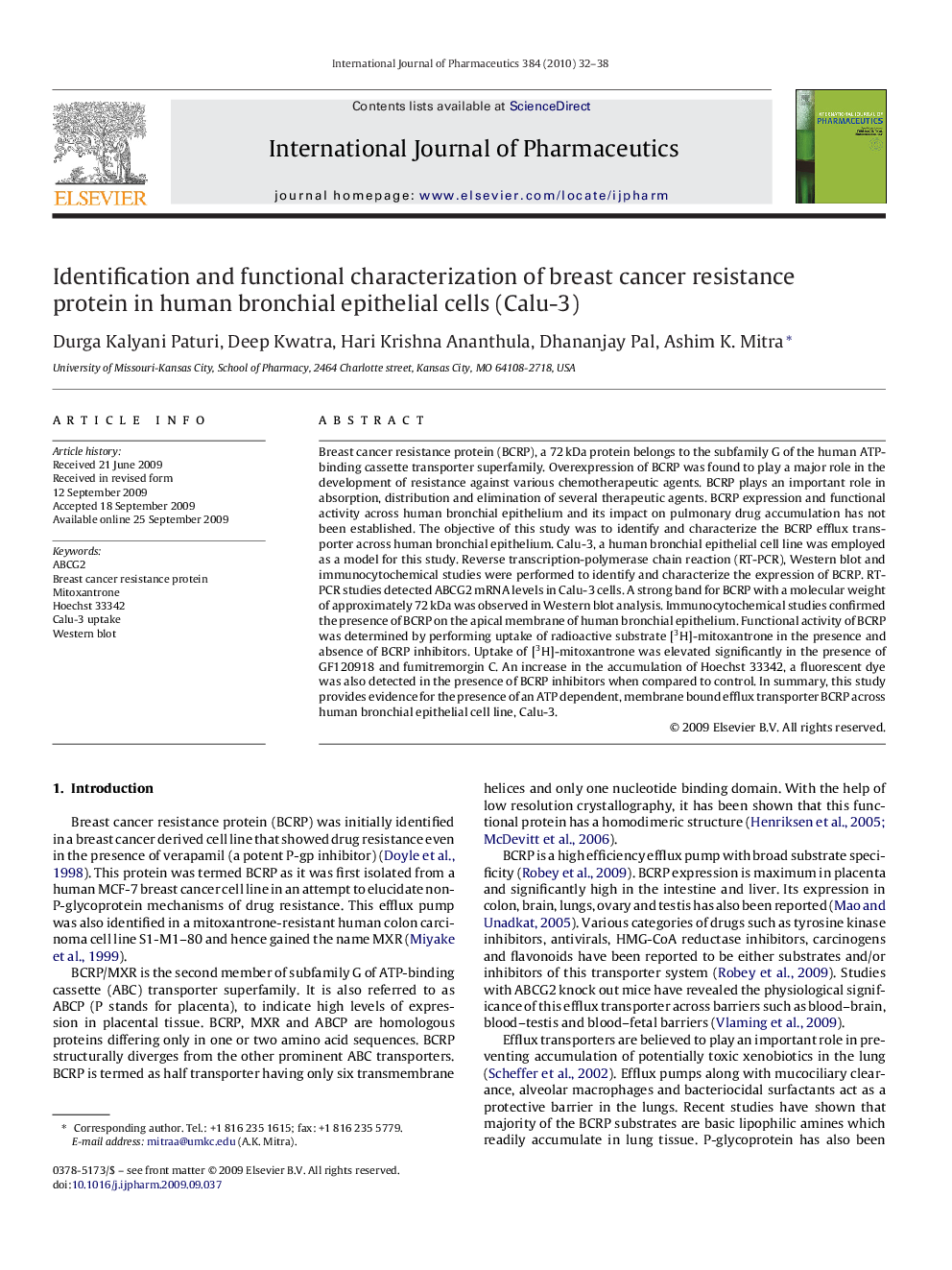| Article ID | Journal | Published Year | Pages | File Type |
|---|---|---|---|---|
| 2504242 | International Journal of Pharmaceutics | 2010 | 7 Pages |
Breast cancer resistance protein (BCRP), a 72 kDa protein belongs to the subfamily G of the human ATP-binding cassette transporter superfamily. Overexpression of BCRP was found to play a major role in the development of resistance against various chemotherapeutic agents. BCRP plays an important role in absorption, distribution and elimination of several therapeutic agents. BCRP expression and functional activity across human bronchial epithelium and its impact on pulmonary drug accumulation has not been established. The objective of this study was to identify and characterize the BCRP efflux transporter across human bronchial epithelium. Calu-3, a human bronchial epithelial cell line was employed as a model for this study. Reverse transcription-polymerase chain reaction (RT-PCR), Western blot and immunocytochemical studies were performed to identify and characterize the expression of BCRP. RT-PCR studies detected ABCG2 mRNA levels in Calu-3 cells. A strong band for BCRP with a molecular weight of approximately 72 kDa was observed in Western blot analysis. Immunocytochemical studies confirmed the presence of BCRP on the apical membrane of human bronchial epithelium. Functional activity of BCRP was determined by performing uptake of radioactive substrate [3H]-mitoxantrone in the presence and absence of BCRP inhibitors. Uptake of [3H]-mitoxantrone was elevated significantly in the presence of GF120918 and fumitremorgin C. An increase in the accumulation of Hoechst 33342, a fluorescent dye was also detected in the presence of BCRP inhibitors when compared to control. In summary, this study provides evidence for the presence of an ATP dependent, membrane bound efflux transporter BCRP across human bronchial epithelial cell line, Calu-3.
